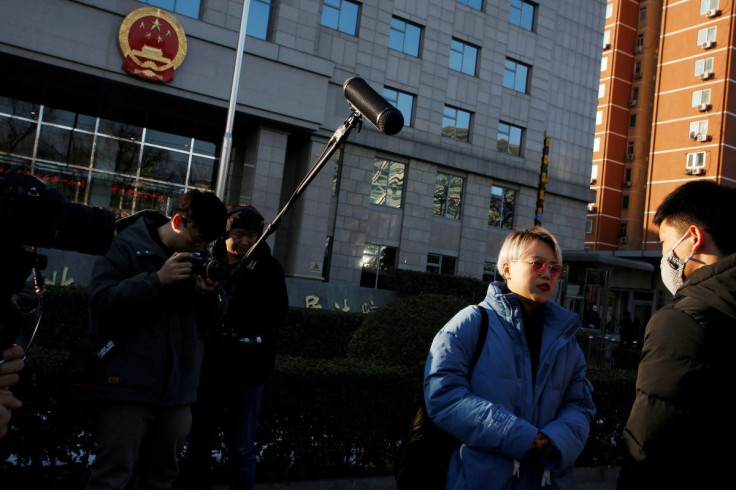Chinese Woman Seeking To Freeze Her Eggs Loses Court Case

An unmarried woman in China has lost a court challenge seeking to freeze her eggs, highlighting concerns about a lack of technology options for Chinese people who consider delaying parenthood.
Teresa Xu, now 34, sued a Beijing hospital in December 2019, accusing it of violating her rights by refusing to freeze her eggs due to her marital status, in a landmark case of a Chinese woman fighting for her reproductive rights.
It is difficult for healthy women in China to access assisted-birth technology to delay their childbearing. National rules allow such methods only for medical issues, such as treating infertility or preserving the fertility of people before going through certain therapies.
The Chaoyang District People's Court in Beijing ruled last week there was no clear law on the specific application of assisted reproductive technologies in China, while saying they must be provided for medical purposes, according to a copy of the decision verified by Reuters on Sunday.
Xu said she was "angry" about the July 18 verdict and planned to appeal.
"It's a small, temporary setback," she said in a video on the WeChat social media platform after receiving the ruling on Friday. "But I still believe that single Chinese women's reproductive rights will improve and advance."
The court dismissed Xu's claim in its entirety.
Her challenge cited two Chinese provinces that have eased certain barriers for single women to access some assisted birth technology and a statement by the national authorities that China's laws do not deny single women's right of birth. But the court found these did not establish that the Chinese health authority allows egg freezing for non-medical reasons.
Xu visited the Beijing Obstetrics and Gynaecology Hospital in November 2018, wanting to freeze her eggs while she focussed on her career as a writer on gender issues, she said when she launched her case the next year.
The hospital argued that egg freezing has various health risks and that delayed pregnancy or single motherhood may lead to other social problems, the court decision said. The hospital said it would reject any request to freeze eggs simply to delay parenthood.
The hospital did not immediately respond on Monday to a Reuters request for comment.
Xu, from the northeastern province of Heilongjiang, said that on her first visit to the hospital for a checkup, the doctor asked her marital status and urged her to have a child right away, rather than freezing her eggs.
On her second visit, the doctor told her she could not proceed any further, she said.
Xu said she considered illegal clinics in China but decided against the idea, and that going abroad for such services was too expensive for her.
© Copyright Thomson Reuters 2024. All rights reserved.











